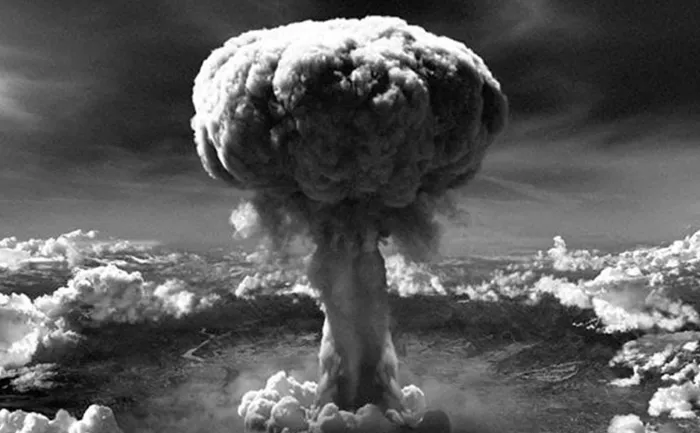August 6th, 1945, is a date forever etched in the annals of history, marking a watershed moment in the trajectory of human civilization. On this fateful day, the world witnessed the detonation of the first atomic bomb over the Japanese city of Hiroshima, unleashing unprecedented devastation and altering the course of global affairs. Join us as we delve into the events of August 6th, 1945, explore its profound impact on nations and peoples, and reflect on its enduring significance in the annals of history.
The Day of the Hiroshima Atomic Bombing
August 6th, 1945, dawned with the promise of a new day in Hiroshima, Japan. Little did its residents know that their city would become ground zero for one of the most catastrophic events in human history. At precisely 8:15 a.m. local time, the Enola Gay, a United States B-29 bomber, dropped an atomic bomb codenamed “Little Boy” on Hiroshima.
The explosion unleashed a blinding flash of light and a deafening roar, followed by a shockwave that leveled buildings and incinerated everything in its path. The mushroom cloud that rose above the city heralded the dawn of the atomic age and marked a turning point in the history of warfare.
The Impact on Japan
The atomic bombing of Hiroshima exacted a staggering toll on Japan, both in terms of human lives lost and infrastructure decimated. An estimated 140,000 people perished in the immediate aftermath of the bombing, with tens of thousands more succumbing to injuries, radiation sickness, and related illnesses in the days, weeks, and years that followed.
The city of Hiroshima lay in ruins, its once-thriving streets reduced to rubble and ash. Survivors, known as hibakusha, faced unimaginable suffering and hardship as they grappled with the physical, emotional, and psychological scars of the atomic bombing. The devastation wrought by the bomb forever altered the fabric of Japanese society and left an indelible mark on its collective memory.
International Repercussions
The atomic bombing of Hiroshima sent shockwaves across the globe, sparking outrage and condemnation from world leaders and ordinary citizens alike. The use of nuclear weapons on civilian populations raised profound ethical and moral questions about the nature of warfare and the sanctity of human life.
In the aftermath of the bombing, calls for nuclear disarmament and the prevention of future nuclear proliferation gained momentum. The horrors of Hiroshima galvanized efforts to promote peace, diplomacy, and global cooperation, as nations grappled with the implications of the atomic age and sought to prevent a nuclear apocalypse.
See also: What Day of the Week was July 4, 1776?
The Birth of the Atomic Era
August 6th, 1945, marked the dawn of the atomic era, forever changing the calculus of international relations and military strategy. The atomic bomb ushered in a new era of warfare, characterized by the specter of mutually assured destruction and the ever-present threat of nuclear annihilation.
In the years that followed the bombing of Hiroshima, the United States and the Soviet Union engaged in a dangerous arms race, stockpiling nuclear weapons and expanding their arsenals in a bid for global supremacy. The specter of nuclear war loomed large over the world, as nations grappled with the existential threat posed by the proliferation of nuclear weapons.
Commemorations and Remembrance
In Japan, August 6th is observed as Hiroshima Peace Memorial Day, a solemn occasion to remember the victims of the atomic bombing and reaffirm the commitment to peace, reconciliation, and nuclear disarmament. On this day, ceremonies are held at the Hiroshima Peace Memorial Park, where the iconic Genbaku Dome stands as a haunting reminder of the city’s tragic past.
Around the world, August 6th serves as a day of reflection and remembrance, with various organizations and communities hosting events and vigils to honor the memory of those affected by the atomic bombing of Hiroshima. Through these commemorations, the international community pays tribute to the resilience of the survivors and pledges to work towards a world free from the threat of nuclear weapons.
Conclusion
August 6th, 1945, stands as a stark reminder of the devastating consequences of war and the enduring legacy of nuclear weapons. As we reflect on the events of that fateful day, let us honor the memory of the victims, embrace the lessons learned from Hiroshima, and rededicate ourselves to the pursuit of peace, justice, and reconciliation. May the tragedy of Hiroshima serve as a solemn reminder of the need to prevent the horrors of nuclear warfare and build a future founded on the principles of peace, understanding, and solidarity.

